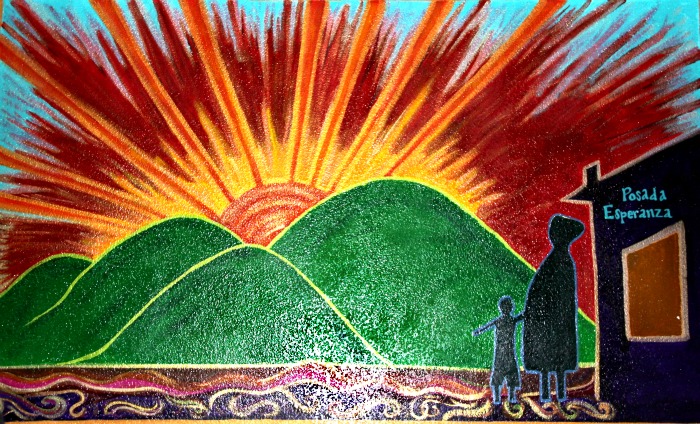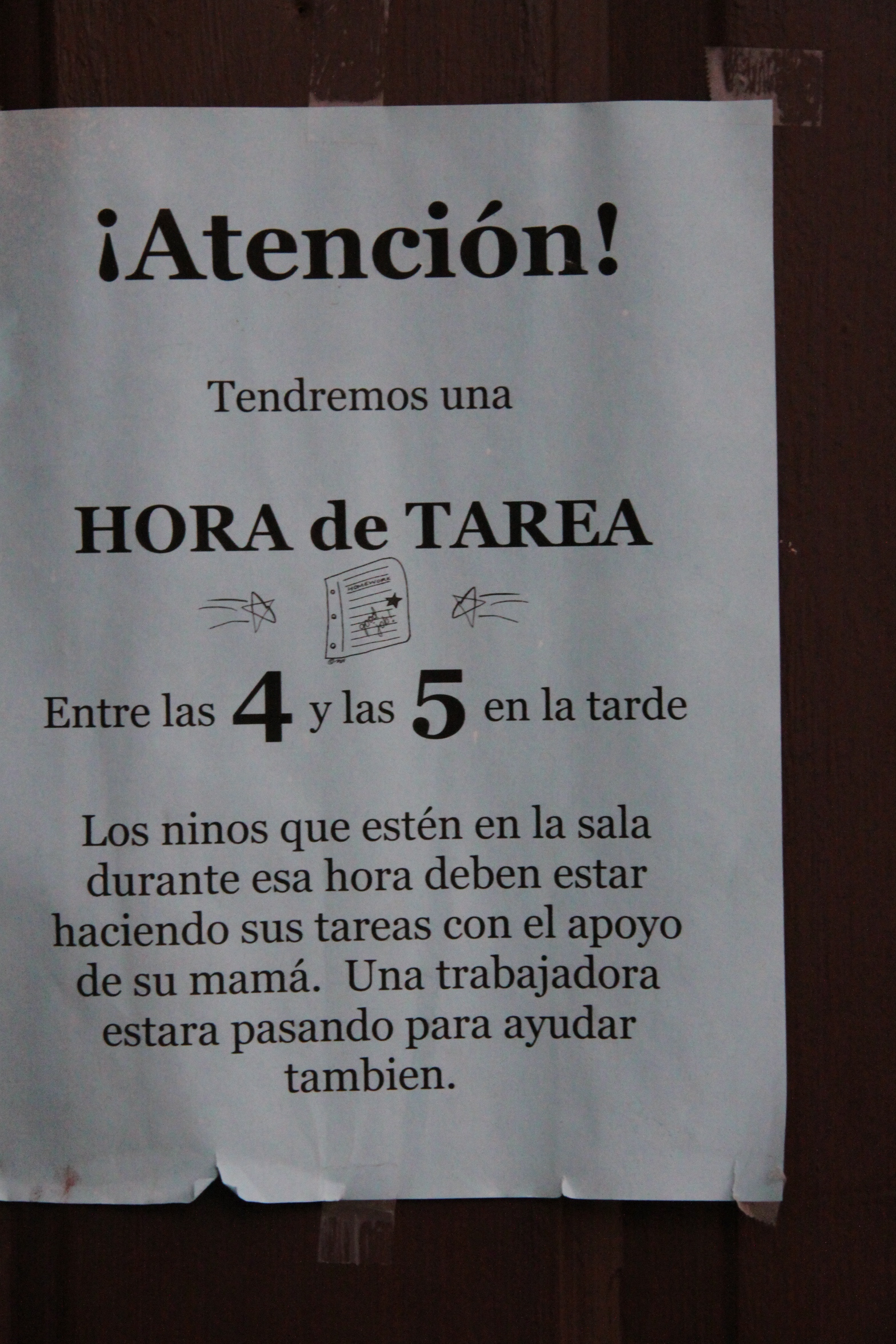Poverty: Education and Children
DAY 1: December 14, 2011 "Inside Books" and "Sending Solidarity"
-Today we went to Inside Books to volunteer organizing books and writing Christmas cards. Sending Solidarity is part of an organization called Inside Books. Inside Books sends books and letters to prisoners, and Sending Solidarity focuses on young prisoners. When we got to Space 12, the building where the books are kept, we were greeted by Sarah Reeves, founder and executive director of Sending Solidarity. She was very helpful and inspiring when she told us about the lives of the kids in jail.
To our D-Term group, it was surprising to hear that kids our age (14 and older) could be put in an adult prison. Lots of these kids weren’t trying to do anything bad. Most juviniles were put in prison for aggravated assault. Though you go into the juvenile justice system for truancy or skipping school, to go into adult prisons, the offender must have committed a felony. In prison, it is very hard to learn because you would have no teachers to help you or school materials. This is where Sending Solidarity can help. Young people who are locked up can send letters requesting books to Sending Solidarity and in return, recieve letters and often books or types of books they requested.
At Sending Solidarity, we organized the books and wrote Christmas cards. There were so many books to go through and organize. It was hard work, but it was also very rewarding. Although we didn’t know the people we were writing to, it was great to give them words of encouragement. These cards will be sent to the young prisoners with books to give them hope and show them that someone cares. It might have just taken a couple minutes to write some cards, or organize a couple books, but each little thing we did will make a big impact on a person’s life.
By Hannah Heydinger
Getting an education is tough for the children in poverty and everyone in the school community, but the children still need a way to get a proper education. Children who don't feel safe and are stressed can't focus or concentrate in school, and therefore will not do as well. Also, many times, the teacher can become overwhelmed and then not be as good a teacher, resulting in an insufficient education for the children in class. To gain a full, proper education that can help you later in life, one must try hard to work for one’s learning experience. This is difficult for children to do in poverty, when all that’s on their minds on a given day is where they will be sleeping tonight or when their next meal will be or if their moms are ever going to find a job.
Youth in poverty in these times often don’t have much hope for the future. Families affect children so much from a very young age and are the child’s main support throughout most of life. Many children in poverty have wishes for an “ideal” family, but they still don’t have them. Children who feel as though they have nothing can occasionally resort to crime, especially those who don’t live in a safe or stable home and don’t have a strong, loving family. Additionally, youth often use violence or other misbehaving ways of showing how they feel, acting out. When there is a problem, it takes a long time to sort it out, or it might never even be addressed. These problems can build up and become worse and sometimes have an outcome of juveniles ending up in the criminal justice system or, depending on the age, even adult prison, which is no place for a child to be. Instead the problems need to be fixed or prevented altogether and the youth need to see something for them selves in a future. Hope for a future.
By Elizabeth Sturley


DAY 2: December 15, 2011 "Posada Esparanza"
-
Today our D-Term group went to Posada Esperanza, a group of small houses that holds eight families headed by single mothers. Most of the families were not expecting us and our contact was not there. Though this may be seen as a downside to our trip, it allowed us to see the families acting the way they normally would and see what they do around the house. We were very lucky to be able to experience this.

Posada Esperanza has two houses they are using currently, and are about to open a third one. Our group divided ourselves among the two houses to put up Christmas decorations. I went to the second house we looked at and had a great time helping. In this house, we meet several children and a couple mothers. There was a woman than spoke only Spanish. Those of us who took Spanish class enjoyed trying to talk with her. She had an adorable baby son who some of us played with while we hung our paper snowflakes on the walls. Later we learned that the woman was pregnant and had fallen the day before. She had gone to the hospital to get help, but even though she needed to stay there to get the care that she needed, she came home because she had no one to care for the son that we were playing with.

We were also very lucky to meet some of the other children and women in the house. All of then had great hopes for the future. One woman, who came from Africa hopes to go to culinary school. We meet a little three year old girl who played duck duck goose with us. She had few toys, but was very happy. Her six year old brother talked to us as we played with her. When we asked him what he wanted to be when he grows up, he said a fireman.
The biggest thing we took from this service project is the idea that they are so much like us. The way the kids acted was the same way that you would suspect a baby cousin or a little sibling to act. These people are just like us, but they are in bad situations. Our group left Posada Esperanza feeling very lucky. There are people very much like us who don’t have the same privileges as us, and we had just gotten to help some of them.
By Hannah Heydinger
Austin Organizations Helping Children in Poverty
by Elizabeth Sturley
There are lots of organizations to help these kids, including one called Breakthrough Austin, which is a program to educate children who otherwise would not have a quality education. Breakthrough is all about providing many of these students with the ability to be the first in their families to go to college in most cases. It is rigorously academic program, but it helps end some of the effects of the inadequate education in some low-income, impoverished areas. Without proper education in our future, the cycle of poverty would continue and many would remain stuck in it.
Another organization is the Council on At-Risk Youth (CARY), which helps promote safe schools and communities for children. Their goal is to intervene early if there might be a problem, before it turn into an issue that could result in the child going to prison or getting into the juvenile justice system. They work to prevent problems for at-risk youth before they happen or at a very initial stage in our public schools here in Austin, so that children can obtain a better education. For children in poverty, who don’t see much hope for themselves, CARY can change their lives for the better and show them a possible future.
One more organization that deals with these issues is Ripples of Hope for Children (RHC), and we even had the director of this program as a speaker in chapel. RHC is a group that was founded to break the cycle of child abuse, juvenile misbehavior, and law-breaking. RHC tries to strengthen families to have them help out in the community, provide these children with opportunities, and meet individual needs of youth who need help. They try to give each child a positive outlook on what might happen in the future, instead of remaining as vulnerable members of our society.
What we Learned
by Henry Tschurr
During the course of d term we did a lot and learned a lot. We had a great time and it inspired us to volunteer more outside of school. After volunteering for an organization that give books to teens in prison we decided we wanted to have a book drive and donate these books to Sending Solidarity. We learned that kids in prison don’t have an opportunity to learn and that when they get out of prison they are behind in school and can’t get a job. The founder of Sending Solidarity read us a letter from one of the kids in prison. It really moved us and got us thinking about how it must be for a kid as young as thirteen to be in an adult prison.
We also volunteered spreading holiday cheer at Posada de Esperanza. We had a great time playing with the little children and helping the people who were there. We decorated the shelter for Christmas and we played duck, duck ,goose and other fun games with the kids there. Many of the people were immigrants from Mexico and it got us thinking about how much hardier I would be to be an immigrant and not speak English, so you couldn’t get a job. All in all the had a great time helping people over d term and hope you read the letter from the kid in prison, and other articles on our website.